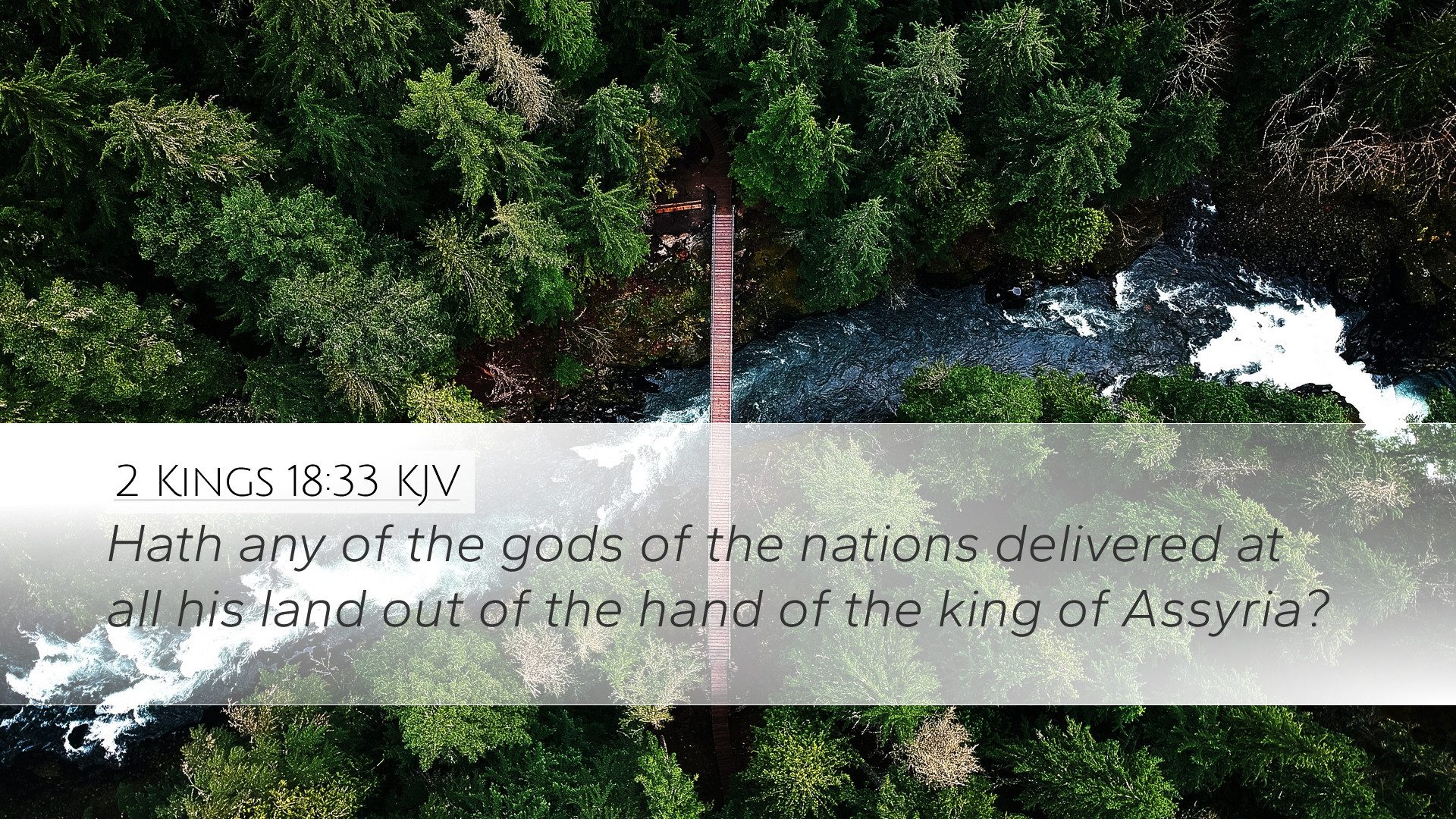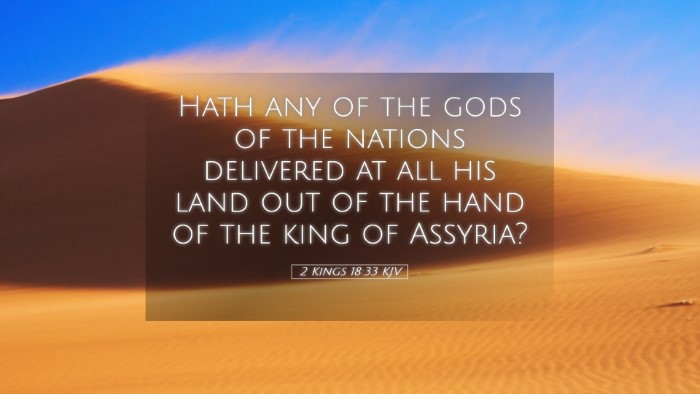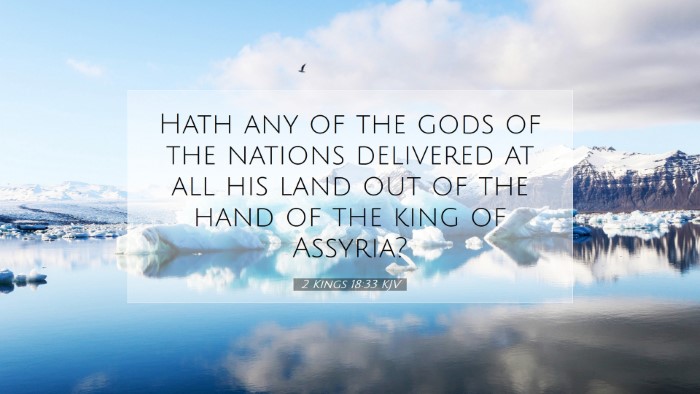Commentary on 2 Kings 18:33
2 Kings 18:33 is a significant verse situated within the narrative of King Hezekiah's reign over Judah, specifically during the Assyrian siege. The verse serves as an articulation of the skepticism and insulting challenge presented by the Assyrian king's emissary against the God of Israel. This commentary synthesizes insights from various public domain sources to offer a comprehensive exploration of the text.
Text of the Verse
2 Kings 18:33 (ESV): "Has any of the gods of the nations ever delivered his land out of the hand of the king of Assyria?"
Contextual Background
The Assyrian Empire was a dominant force in the ancient Near East during the 8th century BCE. In the context of 2 Kings 18, King Hezekiah faces the threat of conquest by the Assyrian king Sennacherib, who had established a reputation for devastating warfare. The Assyrians had already captured many fortified cities of Judah, and Jerusalem was under siege.
Hezekiah stands out as a reformative king who sought to purify the worship of Yahweh and restore proper religious practices among the people of Judah. This background amplifies the weight of the challenge presented by Sennacherib’s representative in the verse under consideration.
Analysis of the Verse
Challenge to Divine Power
Matthew Henry notes that the Assyrian's rhetorical question undermines the unique power of the God of Israel by challenging the belief that He could deliver Judah as He had done for previous nations. This skepticism reflects a broader theme of the Assyrian boastfulness, showcasing their perceived invincibility.
Historical Context and Implications
Albert Barnes provides insight into the implications of this question. It serves not only as a measure of historical contrast between the power of Assyria and the obedience of surrounding nations but also as a blatant disregard for Yahweh's capabilities. This statement reveals the ideological battle between the God of Israel and the Assyrian deities, embedding a challenge framed as a differentiating factor affecting the nation’s faith.
God's Faithfulness
Adam Clarke offers a theological perspective on this situation, emphasizing that the question posed was a trap suggesting that the God of Israel was powerless to save His people. However, Clarke asserts that the question itself set the stage for a profound demonstration of faith and divine intervention. Through this turmoil, God would show that He is indeed sovereign and capable of delivering His people, which is a recurring motif in Israel's history.
Theological Reflections
Faith in the Face of Opposition
This verse encourages believers to understand that challenges to faith will frequently arise, particularly from external pressures and critiques about God's supremacy. Henry asserts that Hezekiah’s faith ultimately undergirded the national identity of Judah, highlighting that true faith resists the apparent realities presented by worldly powers.
Relevance for Today's Believers
In contemporary application, the confrontation depicted in 2 Kings 18:33 encourages Christians to stand firm in their faith. Barnes underscores the importance of recognizing the deliverance of God throughout history as an encouragement in times of trouble. The believer's response to the threats of secular ideologies, much like Hezekiah’s, can result in reaffirming one's trust in a God who is not powerless amidst the world’s challenges.
Application for Pastors and Theologians
Encouragement to Preach Boldly
This verse highlights the importance of preaching a God who intervenes in history. Pastors can utilize the event of King Hezekiah and Sennacherib's confrontation as a narrative to compel congregations to reflect on God’s deliverance.
Teaching about Fearing God
Clarke stresses the essence of fearing God over fearing man. This presents an opportunity for Bible students to explore theological dichotomies, contrasting the fears associated with earthly powers and the reverence owed to the Creator.
Conclusion
2 Kings 18:33 stands as a poignant reminder of God's power in the face of challenges. The commentary illustrates the need for unwavering faith amidst threats, insights about the nature of God against rival claims, and the enduring lessons applicable to the lives of believers today. In examining this short verse, one finds profound implications that can rejuvenate the faith of a community in the 21st century, reinforcing that God is indeed able to deliver, regardless of the adversity faced.


